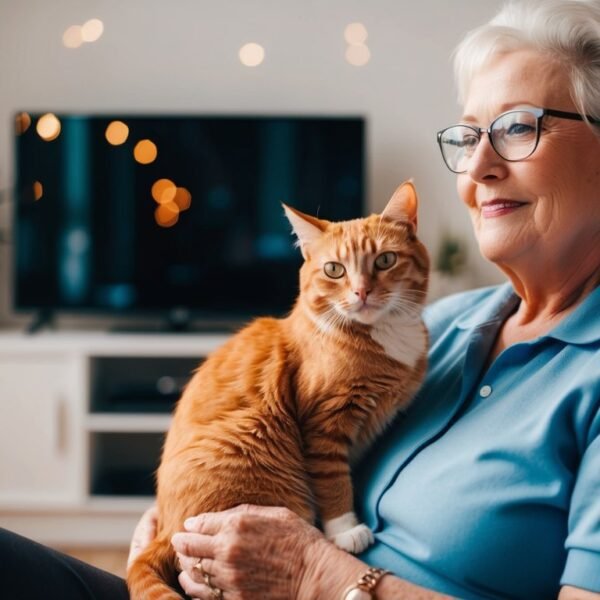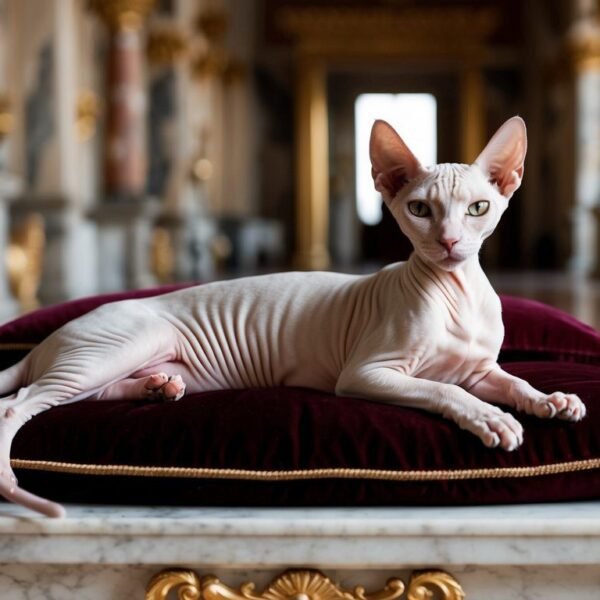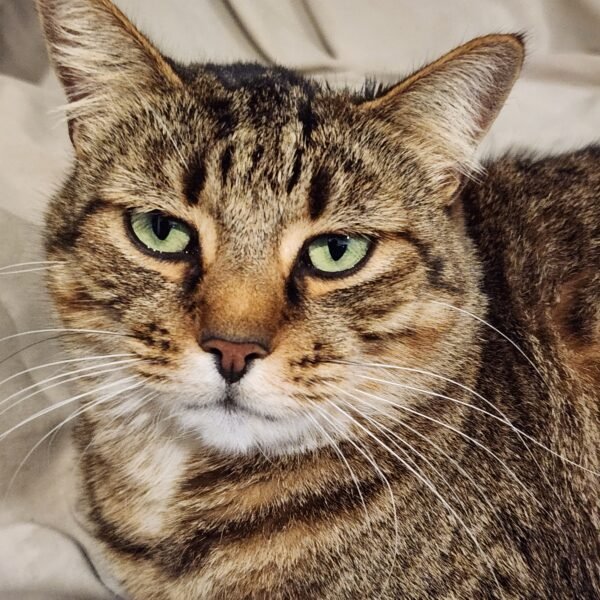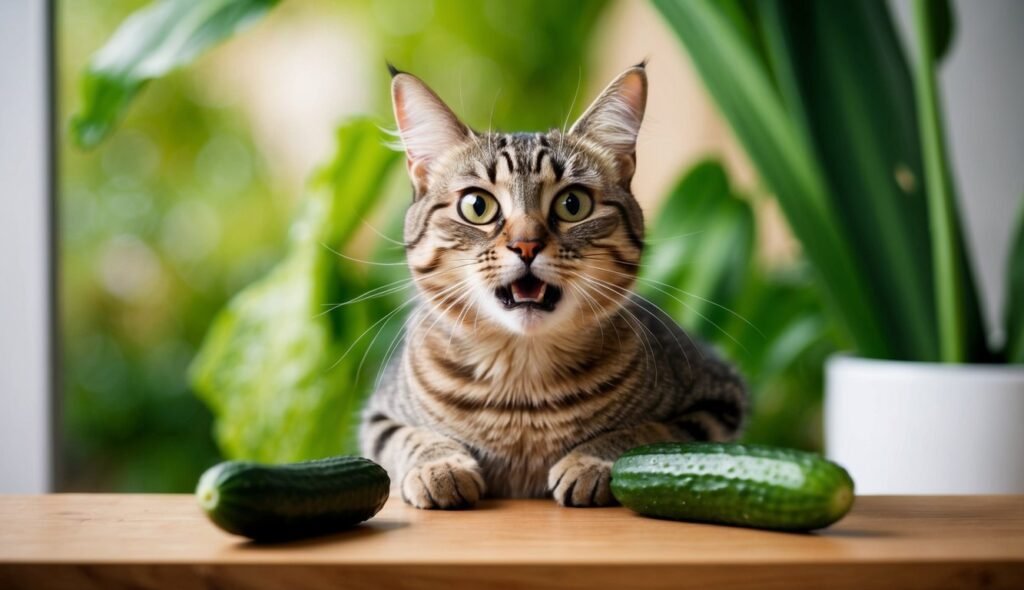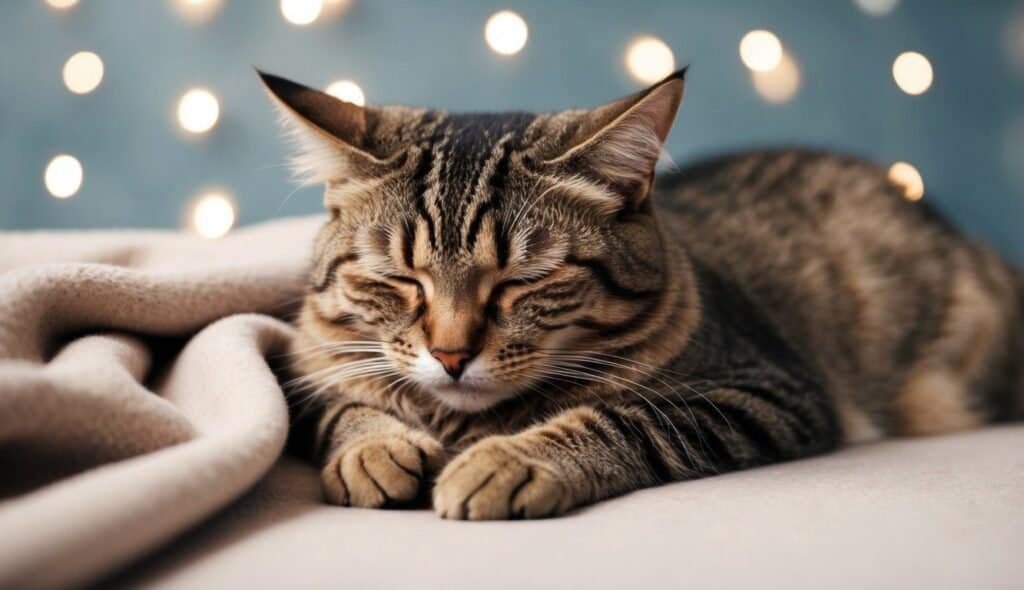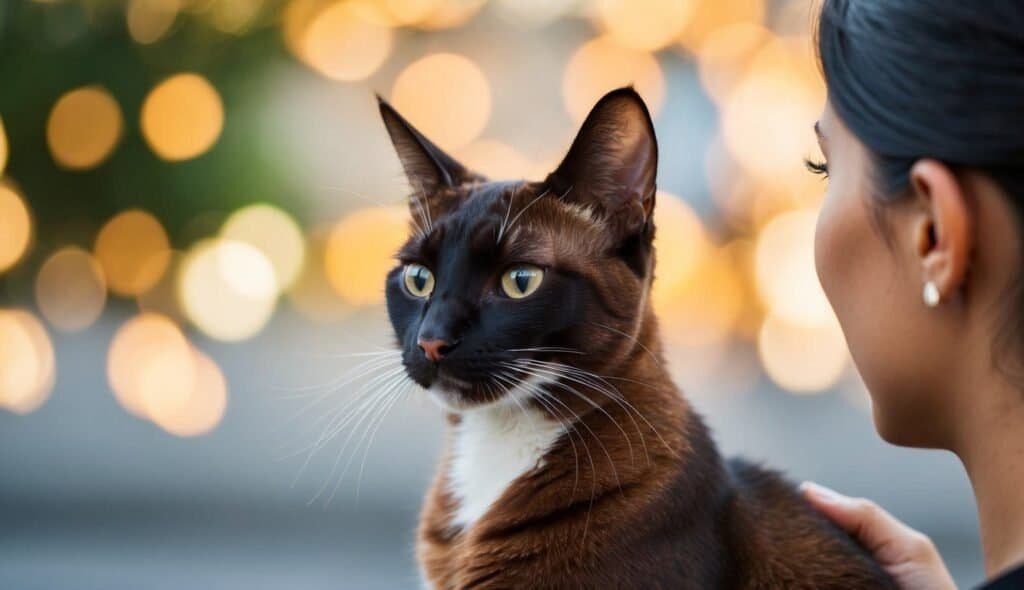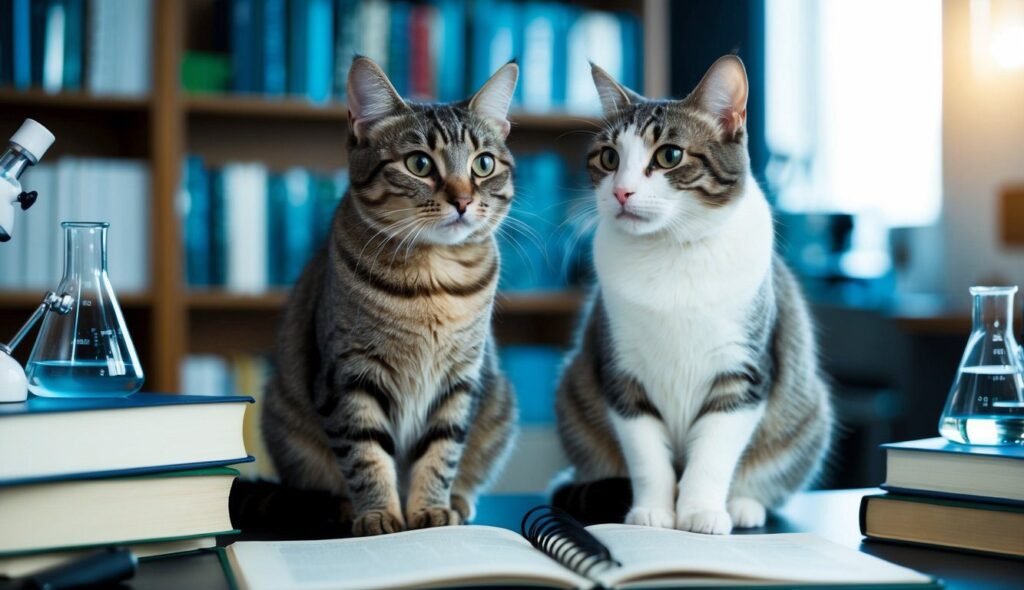Have you ever wondered if your feline friend truly remembers you after you’ve been away? Cats are known for their independent nature, but they also form strong bonds with their human companions. Many cat owners wonder if their pets actually remember them or if they’re simply responding to familiar scents and routines. Do cats remember people?
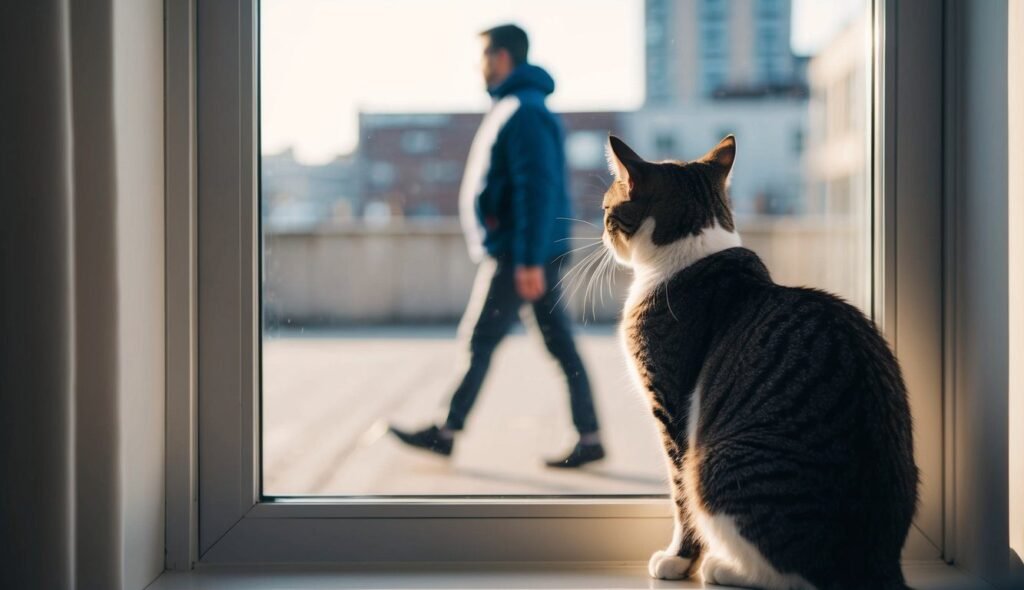
Cats do remember people, and they can recognise their owners even after long periods apart. Studies suggest that cats have excellent memory recall abilities, allowing them to remember not just people but also other animals and important locations in their environment. Your cat’s ability to remember you is linked to their impressive long-term memory, which is believed to be much larger than that of dogs.
When you return home after a holiday, your cat’s reaction might not be as obvious as a dog’s enthusiastic greeting. However, this doesn’t mean they’ve forgotten you. Cats often show their recognition through subtle behaviours like purring, rubbing against you, or seeking your attention. Your cat’s memory of you can last for months or even years, so you can rest easy knowing that your furry mate will always remember you, no matter how long you’re apart.
Understanding Feline Memory

Cats have complex memory systems that allow them to recall people and experiences. Their memories shape how they interact with humans and their environment.
The Science Behind Cat Memories
Cat memory involves different types of recall. Short-term memory helps cats remember recent events for hours. Long-term memory allows cats to recognise people and places for years.
Cats use their senses to form memories. Scent is very important. Your cat links your smell to past experiences with you. Visual cues also help cats remember people. They recognise familiar faces and body shapes.
Emotional memories are powerful for cats. Positive interactions create good associations. Negative experiences can lead to fear or anxiety. This is why consistent, gentle handling is key when bonding with cats.
Comparative Memory in Cats and Other Animals
Cats have impressive memories compared to many animals. They can recall information for up to 16 hours in short-term tests. This is longer than the average animal’s 27-second recall.
Cats outperform dogs in some memory tasks. They excel at remembering the location of objects. Cats also show strong spatial memory, helping them navigate and hunt.
However, cats’ memories aren’t perfect. They don’t form autobiographical memories like humans. Cats live more in the present, focusing on immediate needs and experiences.
Still, cats do remember important people and places. Your cat likely recognises you even after long absences. This ability to form lasting memories helps cats build bonds with their human families.
Cat’s Recall of Owners and People

Cats have impressive abilities when it comes to remembering people. They can recognise familiar faces and maintain long-term memories of previous owners, often for years.
Recognition of Familiar Faces
Cats are quite skilled at recognising their owners’ faces. They use a combination of visual cues, scents, and sounds to identify you. Your cat likely knows you by:
- Your unique facial features
- The sound of your voice
- Your specific scent
When you return home after being away, your cat may greet you enthusiastically. This shows they remember who you are. Cats can also distinguish between familiar people and strangers. They often act differently around people they know versus those they don’t.
Long-Term Memory of Previous Owners
Cats have surprising long-term memory capabilities. They can remember people they haven’t seen in years. This includes previous owners or caretakers. Some key points about cats’ long-term memory:
- Cats can recall people they haven’t seen for months or even years
- Positive or negative experiences strongly influence what cats remember
- A cat’s memory of a person can last for their entire lifetime
If you’ve adopted a cat, it may still remember its previous owner. This could explain why some cats take time to warm up to new homes. They’re not forgetting their past, but rather adjusting to new surroundings and people.
Behavioural Indicators of Memory
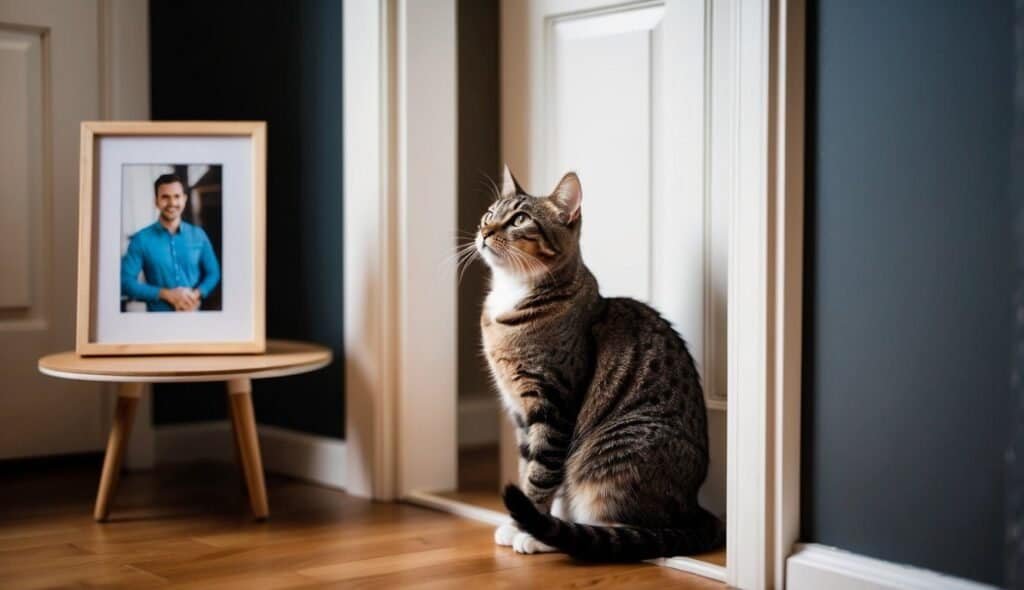
Cats show their memory through actions and responses. You can see signs of their recall in how they act around people and react to familiar scents.
Responses to Human Interaction
When cats remember people, they often display clear behaviours. They might greet you with a raised tail or rub against your legs. If a cat trusts you, it may roll over to show its belly. Some cats even remember specific people years later.
Cats may also react to your voice or the sound of your car. If your cat comes running when you call its name, that’s a sign of memory at work. Cats can even recall past experiences. If you’ve scolded your cat before, it might hide when it hears a stern tone in your voice.
Memory Triggered by Scent
A cat’s sense of smell plays a big role in its memory. Cats have a strong ability to remember people by their scent. When you return home after being away, your cat might sniff you intently. This helps it confirm your identity and refresh its memory of you.
Cats also use scent to mark their territory. By rubbing against you, they’re not just showing affection. They’re also leaving their scent on you, creating a familiar smell that helps them remember you. This scent marking is a way for cats to create a comforting, familiar environment.
Memory Retention Span in Cats
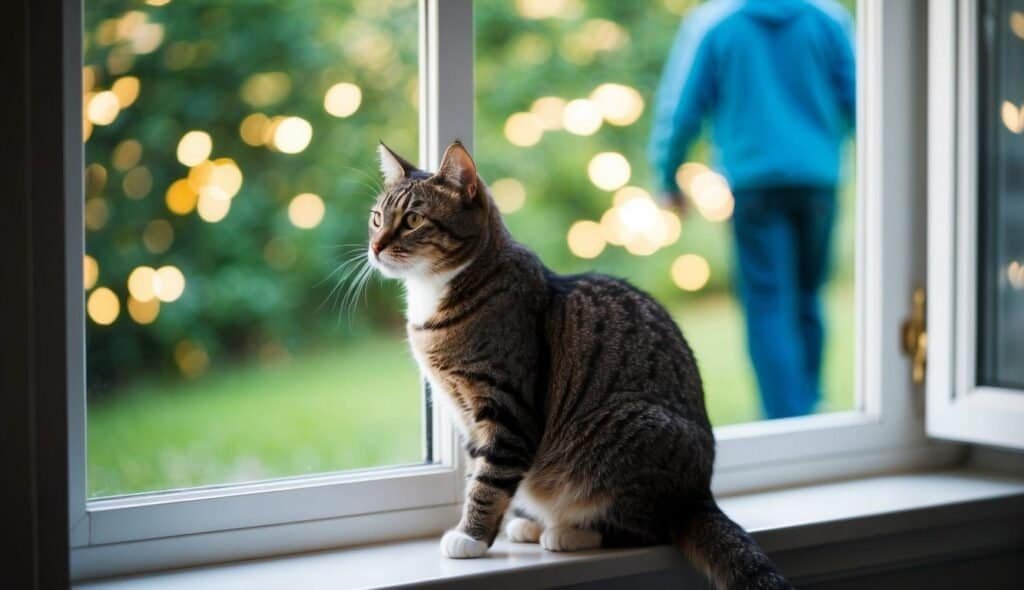
Cats have impressive memory abilities when it comes to remembering people. Their memory retention span can vary based on several factors and the type of memory involved.
Memory Duration and Absence
Cats can remember people for long periods, sometimes up to 10 years or more. This long-term memory helps them recognise their owners even after extended absences.
Your cat’s short-term memory is also quite good. Studies show cats can hold information for up to 16 hours, which is much longer than the average animal’s 25-second span.
When you’re away, your cat doesn’t forget you. They may seem aloof upon your return, but this is often just their way of expressing themselves.
Factors Affecting Memory Retention
Several things can impact how well and how long your cat remembers you:
- Bond strength: A closer relationship means better memory retention
- Age: Older cats may have declining memory abilities
- Health: Certain illnesses can affect cognitive function
- Experiences: Positive or negative associations influence memory
Food-related memories are particularly strong for cats. If you’re the one who feeds them, they’re more likely to remember you clearly.
Regular interaction and positive experiences help reinforce your cat’s memory of you. Even if you’re absent for a while, your feline friend is unlikely to forget you completely.
Emotional Memories and Bonding
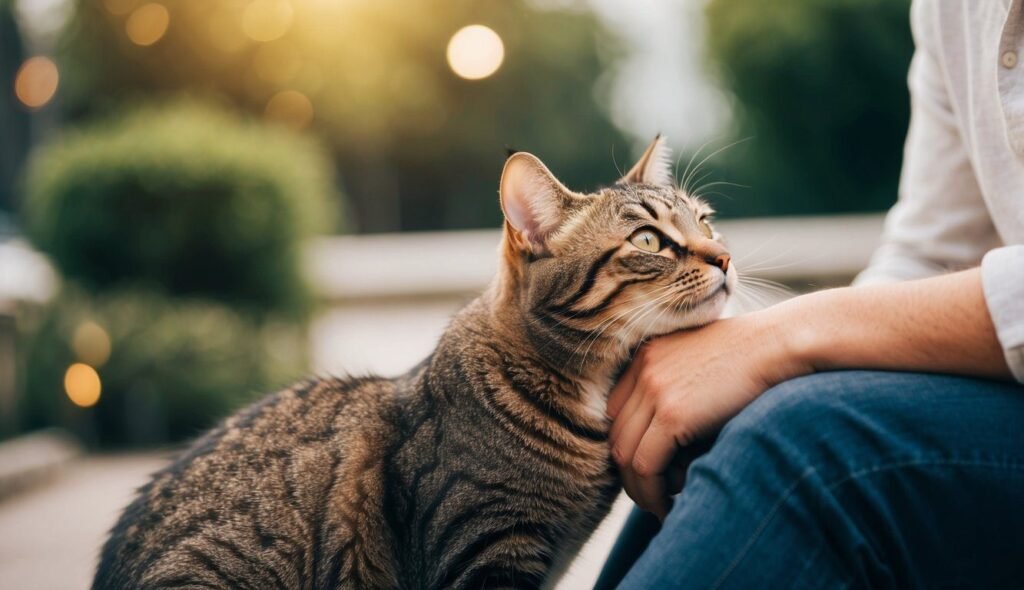
Cats form strong emotional connections with people they like. These bonds shape their memories and influence how they interact with humans over time.
Attachment to Their Favourite Person
Cats can remember their favourite person for years. You might be that special someone if your cat:
- Greets you enthusiastically when you come home
- Follows you around the house
- Seeks your attention more than others
This bond develops through positive interactions. Feeding, playing, and gentle petting all help create happy memories for your cat.
Some cats even remember visitors they’ve met before. If a guest your cat likes returns after a long time, your pet might show signs of recognition. These could include rubbing against their legs or sitting near them.
Memories of Past Experiences
Cats also remember past experiences, both good and bad. If someone was mean to your cat, they might hide when that person visits again. On the flip side, cats often remember people who treated them kindly.
Your cat’s memory helps them:
- Avoid things that scared them before
- Seek out activities they enjoyed
- Recognise safe and unsafe situations
Cats use these memories to guide their behaviour. That’s why consistent, positive interactions are key to building a strong bond with your feline friend.
Cognitive Abilities and Age
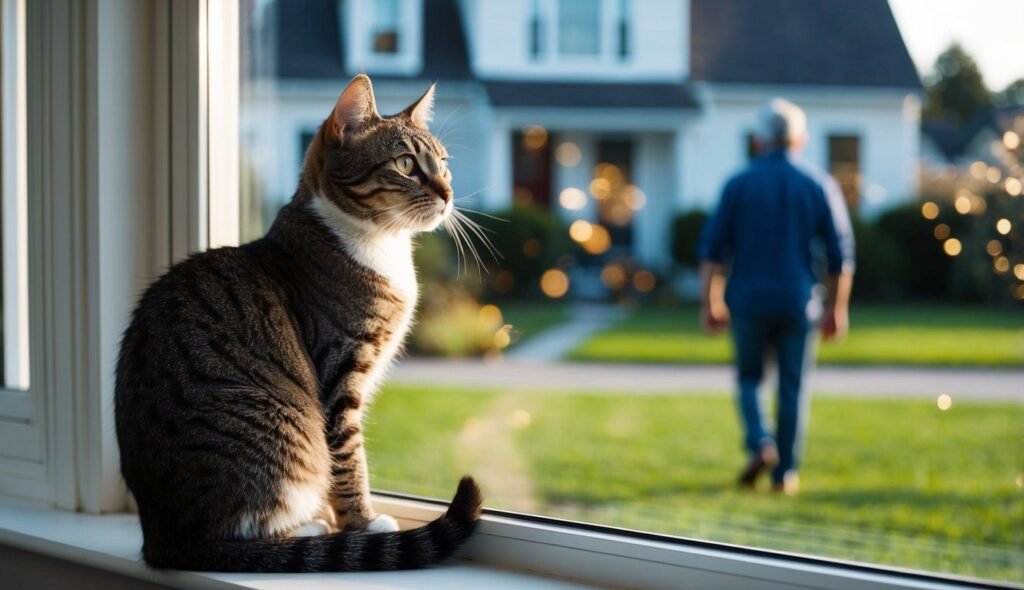
Cats’ memory and cognitive skills change as they grow older. These changes affect how well they remember people and events.
Impact of Aging on Memory
As cats age, their memory can decline. Older cats may have trouble remembering people they haven’t seen in a while. This is because of changes in their brain.
Some signs of memory loss in older cats include:
• Forgetting where their litter box is
• Not recognising familiar people
• Getting lost in their own home
You can help your ageing cat by:
• Keeping their routines consistent
• Providing mental stimulation with toys and games
• Feeding them a healthy diet rich in antioxidants
Memory Differences in Younger vs Older Cats
Young cats typically have better memory than older ones. Kittens can remember people they’ve met, even after long periods. Their brains are still developing, which helps them form strong memories.
Younger cats are often more curious and playful. This helps them:
• Learn new things quickly
• Remember where they’ve hidden toys
• Recognise people they’ve met before
As cats get older, their memory may not be as sharp. But with proper care, you can help keep their mind active. Regular playtime and social interaction can make a big difference in how well your cat remembers people and things.
Social and Spatial Recognition
Cats have impressive abilities when it comes to remembering people, places, and other animals. Their keen senses and memory help them navigate their world and form social bonds.
Identification of Places and Other Animals
Cats excel at spatial memory, allowing them to recall the layout of their environment. You might notice your cat easily finding its favourite spots or hidden treats. This skill helps them remember places they’ve been before.
When you take your cat to a new location, it will use its senses to create a mental map. Scent plays a big role in this process. Your cat may rub against objects to leave its mark and make the space feel familiar.
Cats can also remember other animals, including their siblings. They use scent as their main way of recognising other cats. Even after being apart for a while, cats may still remember their family members.
Social Memory and Hierarchy
Your cat’s social memory helps it understand its place in the household. Cats remember past interactions with people and other pets, which shapes how they behave around them.
Cats can recognise their owners and form strong bonds. They use sight, sound, and smell to identify you. Your cat may greet you differently from strangers, showing it remembers who you are.
In multi-cat homes, felines establish a social hierarchy. They remember their relationships with other cats and adjust their behaviour accordingly. This memory helps keep the peace and reduces conflicts among housemates.
Implications for Cat Owners
Cats have remarkable memory abilities that affect how they bond with their owners. Understanding these abilities can help you form stronger connections with your feline friends and provide better care.
Adopting a Cat with a History
When you adopt a cat with a past, it’s important to know that cats can remember people from years ago. This means your new pet might have lingering memories of previous owners or experiences. Be patient as your cat adjusts to its new home.
Give your cat time to form new positive associations with you. Offer plenty of love, treats, and cosy spots to help your cat feel safe. If the cat seems anxious, create a quiet space where it can retreat.
Remember, cats are individuals. Some may warm up quickly, while others need more time. Your consistent care will help build trust and create new, happy memories for your cat.
Training and Positive Reinforcement
Cats remember people who feed them, so use this to your advantage in training. Positive reinforcement is key to forming strong bonds and teaching good behaviours.
Use treats and praise to reward your cat for desired actions. This could include:
- Using the litter box
- Coming when called
- Allowing nail trims
Be consistent with your training. Cats learn through repetition, so stick to a routine. Keep training sessions short, about 5-10 minutes, to match your cat’s attention span.
Remember, patience is crucial. Cats learn at their own pace. With time and positive experiences, your cat will associate you with good things, strengthening your bond.
Frequently Asked Questions
Cats have complex memories that allow them to recognise and remember people. Their ability to recall faces, scents, and past experiences shapes their interactions with humans.
How long can cats remember their owners?
Cats can remember their owners for years. Their long-term memory lets them recognise familiar people even after long separations. You might notice your cat getting excited when you return from a trip.
Are cats able to recognise people’s faces?
Yes, cats can recognise human faces. They use visual cues to tell people apart. Your cat likely knows your face and can pick you out of a crowd.
Can cats retain memories of their owners over several years?
Cats have impressive long-term memory. They can remember people for many years, especially those who made a strong impression. If you’ve been kind to a cat, it may remember you even after a long time apart.
Do cats experience missing their owners when they’re away?
Many cats do miss their owners when they’re gone. They might show this by acting clingy when you return or seeming sad while you’re away. Each cat expresses its feelings differently.
Will a cat remember a person who has caused them harm?
Cats can remember negative experiences. If someone has treated a cat poorly, the cat may become fearful or aggressive around that person in the future. This shows cats retain memories of past interactions.
Do cats have the ability to remember human scents?
Cats have a keen sense of smell and can remember human scents. They use scent to recognise people they know. Your cat might sniff you when you come home to confirm it’s really you.
Your Cat’s Story
Calling all cat enthusiasts and lovers of all things furry and fabulous! Does your moggy go by a name that’s the cat’s whiskers? Perhaps you’ve christened your feline friend ‘Sir Purr-a-lot’ due to his incessant purring, or ‘Madam Mittens’ because she simply won’t stop playing with your socks.
We’re all ears (and tails!) to hear the marvellous stories behind your cat’s name. Share your whiskered companion’s name and the tale that makes it so purr-fect in the link below. Don’t forget to include a snapshot of your fabulous feline—after all, a picture is worth a thousand meows!
Who knows? Your charming kitty might just claw their way into a feature on our blog. So, hop to it! Let’s turn this corner of the internet into a celebration of quirky names and the lovable cats who wear them so well.
Join the Mad About Meow Family!
Get your paws on exclusive tips, adorable cat stories, and the latest feline-friendly finds. Don’t miss a whisker of the action—subscribe now and stay in the loop with all things cat-tastic!


